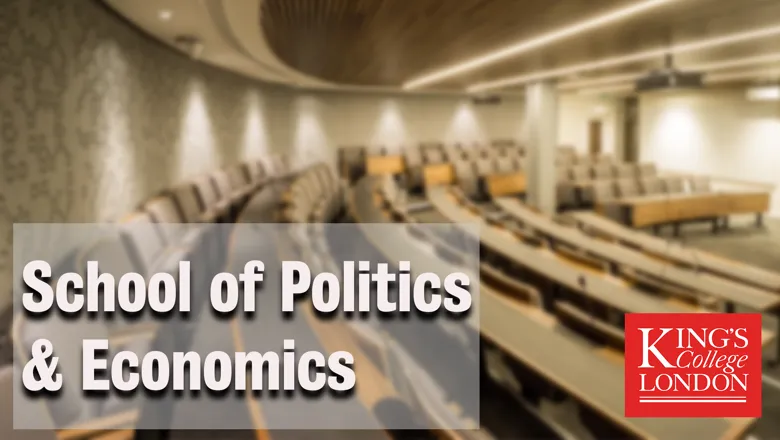01 March 2022
Paper examines role of identity politics in international unions
Why did the UK vote to leave the EU despite a near-unanimous view among economists that Brexit would have negative consequences? And why did southern European countries like Spain, Portugal and Greece join—and remain—in the monetary union despite significant fundamental economic differences from the core northern countries, which require different monetary policies?

A new paper, co-authored by Professor Moses Shayo, from King’s College London, and Dr Boaz Abramson, from Stanford University, addresses those questions and more by studying the role of identity politics in international integration.
The paper, published in the Journal of International Economics, extended existing economic theories of international integration to include insights from the growing field of identity economics. The researchers found that economic unions between nations are more fragile when peripheral members have a higher status than those at the politically dominant core.
Researchers also showed that higher status countries on the periphery of a union have stronger national identification and, thus, a lower willingness to compromise, even when economic conditions are beneficial to that member country and the differences in policy are small.
By contrast, low-status countries are less likely to leave unions, even when between-country differences in policies are large, and although union policies may impose significant economic hardship.
The researchers said: “A union with a high-status periphery country (like the UK) tends to be more fragile and may break up at low levels of fundamental differences, compared to a union with a low-status periphery.
“Importantly and against the hopes of many supporters of European integration unification does not necessarily support the emergence of a common identity in equilibrium. Indeed, in the case of relatively high core status, integration can push the core countries towards a more exclusionary identity.
“Our analysis also points to the possibility that low status countries get caught in an identity poverty trap: low national status generates an incentive to identify as a member of the union, but such an identification entails a higher cost of breaking up with the union. This can push the periphery country to policy concessions that further erode its status.”
Read more...
You can read the paper, International integration and social identity, here.

